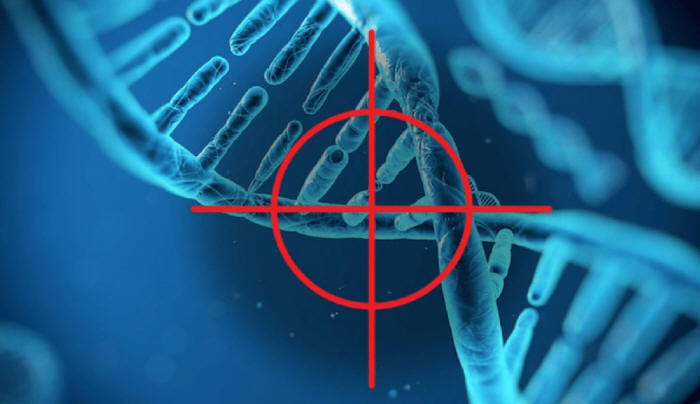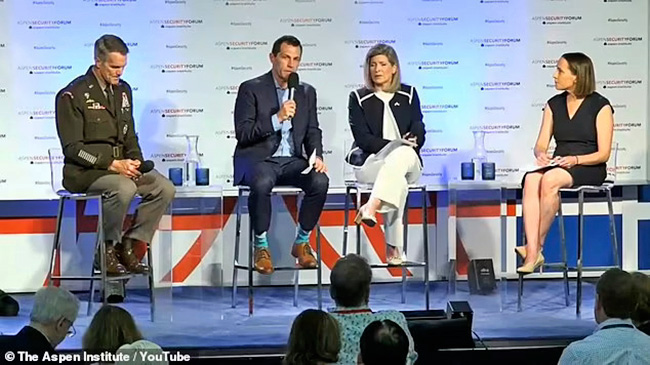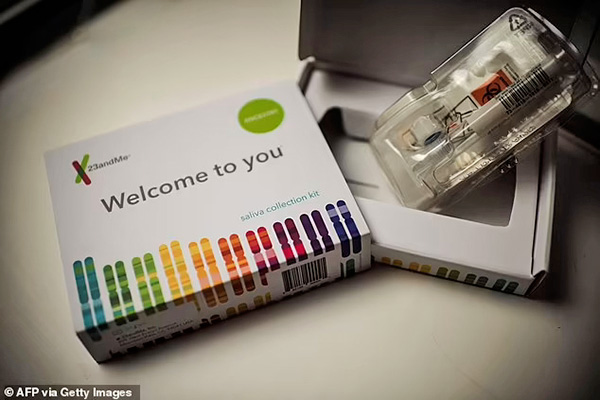|
and design a weapon that can kill them'.
House intelligence committee member warns people not to share health data with sites like 23andMe because it can be used to program new bio-weapons to target them.
A member of the U.S. House Intelligence Committee warned that bio-weapons are being made that use a target's DNA to only kill that person.
Speaking at the Aspen Security Forum on Friday, US Rep Jason Crow of Colorado warned Americans to not be so cavalier about sharing their DNA with private companies due to the coming of the new type of weapon.
The congressman Jason Crow said the development of the weapons were worrying given the popularity of DNA testing services like 23andMe.
The congressman said the development of the weapons is worrisome given the popularity of DNA testing services, where people willingly share their genetic mapping with businesses to gain insight on their genealogy and health.
Crow, a former Army Ranger who served three tours of duty in Iraq and Afghanistan, continued:
23andMe has repeatedly stated that it does not sell off customers' private information, but the DNA company is one of many that has provided information to police upon request
23andMe
US Senator Joni Ernst of Iowa, a member of the Senate Armed Services Committee, said the US rivals could use such DNA bio-weapons to target food supplies on a vast scale.
Ernst warned that biological weapons could be used to target specific animals that citizens, troops or cities depend on, bringing about scarcity and food insecurity to weaken people.
Earlier this week, the Washington Examiner reported on just how easy it could be for privately-owned databases to be used to develop bioweapons such as the ones touted by Crow.
The publication explained how DNA belonging to a target - or the close relative of a target - could be stolen and used to form a biological weapon effective against that person only.
That technology could lead to highly-targeted assassination programs, and also make it much harder for killers to be tracked down.
Similar technology could be deployed against US agriculture by designing weapons which target only a certain breed of farm animal, or crop.
That could plunge the country into famine, and leave the US on its knees in the face of hostilities from a rival like Russia or China.
Army General Richard Clark, commander of the US Special Operations Command, highlighted how Russia had already shot to infamy with a less-sophisticated version of the same scheme.
Discussing the nerve agent poisoning of former double agent Sergei Skripal in England in 2018, he said:
Skripal and his daughter Yulia were poisoned with the nerve agent Novichok in the English town of Salisbury, and almost died from their injuries.
Britain's then-Prime Minister Theresa May blamed Russia for the outrage days later.
Last year, US Sen. Marco Rubio sounded the alarm that Russian and Chinese labs were processing the DNA tests of Americans through Medicare and Medicaid.
In 2018,
...all signed on to the policy drafted with the help of The Future of Privacy Forum, a non-profit, in support of,
The guidelines, titled Privacy Best Practices for Consumer Genetic Testing Services and released on Tuesday, deal with scenarios where users' personally identifiable and anonymous genetic information might be shared with law enforcement (without a warrant) and other third parties.
The new voluntary policies call for requiring separate consent from users before sharing 'individual-level information' with other businesses and more transparency about the number of requests for data received by, and fulfilled for, law enforcement.
While all the companies have said they agree to these standards of practice, there is no law enforcing the rules.
|




